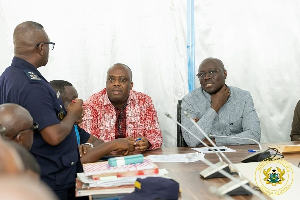A study conducted by West Africa Civil Society Institute (WACSI) has revealed that the sustainability of Civil Society Organisations (CSOs) in Ghana is weak as currently most CSO are just struggling to thrive.
The WACSI Civil Society Sustainability study said several CSOs in Ghana faced the challenge of financial sustainability, operating under intense pressure to survive and thrive in an increasingly competitive and dwindling funding environment.
The study recommended that CSOs explore diversity of financial resources, enhance quality of service delivery, form strategic alliances with the private sector and share results widely.
Presenting the findings of the study at a Regional Workshop on Civil Society Sustainability in West Africa, Mr Isaac Hubert Arthur, Head of Research, WACSI, said “Several organisations are striving to operate; others are just surviving the change, while many others are actually thriving, at least at present.”
He described the current state of sustainability of civil society in Ghana as very challenging but not too gloomy to cause their 'extinction'.
The workshop organised by WACSI with support from International NGO Training and Research Centre in the UK, was attended by civil society organisations in Africa.
Mr Arthur said the objective of the study was among others to examine the “state of sustainability” of civil society in Ghana, identify relevant criteria to measure the sustainability of Ghanaian civil society.
It was also to identify key challenges threatening the sustainability of civil society in Ghana, and determine how the sustainability of civil society organizations impact their work.
WACSI has developed a three year sustainability programme for West Africa to respond to the challenges facing civil society.
It seeks to ensure that the contributions of civil society actors and organisations towards deepening and consolidating democratic governance at both national and regional levels are sustained and consolidated.
Mr Arthur said there was some hope as some strategies and adaptations were already being implemented.
“CSOs must not only survive but thrive to be satisfactorily sustainable,” he said.
Rachel Hayman, Head of Research of INTRAC, presenting the global perspectives on civil society sustainability, called for an urgent strategy to review their structures, roles responsibilities and relationships with communities, governments and funding partners to ensure their long-term sustainability.
Nana Asantewaa Afadzinu, WACSI Executive Director, said it was important to strengthen the civil society considering their role in nation building.
She called for the need to look at sustainability holistically since it was the key to building civil society.
Regional News of Thursday, 19 November 2015
Source: GNA












